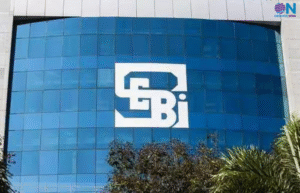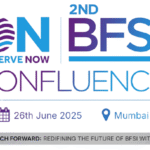ObserveNow Concludes 4th Digital Bharat Summit: Paving India’s Path to a Smarter, Safer & Sustainable Digital Future

ObserveNow Media successfully concluded the 4th Edition of the Digital Bharat Summit on November 29, 2024, at Hotel Eros, New Delhi. Powered by Omnissa, the event revolved around the theme “Empowering a Digital India: Innovations for a Smart Future” and attracted over 40+ eminent speakers, 120+ industry leaders, and professionals from across sectors. With five engaging sessions, the summit offered unparalleled networking opportunities and thought-provoking discussions, setting a new benchmark for insights into India’s digital governance landscape.
The day commenced with a welcome address by Taniya Tikoo, Co-founder & Editor-in-Chief, ObserveNow. She emphasized how India is accelerating its journey toward the Digital India initiative, highlighting its transformative impact across sectors. Taniya spoke about India’s strides in leveraging emerging technologies to empower citizens, modernize governance, and bridge socio-economic divides. Her remarks set an optimistic tone for the event, acknowledging India’s leadership in embracing digital technologies while also emphasizing the need for continuous innovation and inclusivity.
The inaugural session, “Digital India: Vision for the Future,” featured distinguished speakers, including Abhishek Singh, IAS, Additional Secretary, Ministry of Electronics & Information Technology, Government of India; H.E. Freddy Svane, Ambassador of Denmark to India; Dr. Per-Arne Wikström, Counsellor Innovation and Science Office, Embassy of Sweden, and Umesh Goel, Pre-Sales Head, India, Omnissa. Abhishek Singh highlighted India’s achievements during its G20 presidency, positioning its digital public infrastructure as a global model for inclusive growth and resilience. Freddy Svane lauded India’s initiatives in empowering rural communities through digitization while emphasizing the importance of global partnerships to address emerging vulnerabilities. Dr. Wikström stressed the importance of ethical AI, inclusivity, and transparency in technology adoption. Meanwhile, Umesh Goel addressed pressing data security challenges, urging businesses to adopt innovative solutions for safeguarding critical data assets and enhancing trust in digital ecosystems.
Sanjeev Kumar Gupta, CEO of Karnataka Digital Economy Mission, delivered a compelling keynote address, stating, “No other country is growing as rapidly as India. The next decade belongs to us.” He highlighted India’s demographic advantage and the burgeoning digital economy, emphasizing its position as the third-largest startup ecosystem globally. He also underscored how government initiatives like India Stack and advancements in AI, blockchain, and IoT are catalyzing the nation’s transformation into a global digital powerhouse.
The first panel discussion, “Bringing New India with Technology Modernization,” moderated by Vinay Vashista, Associate Director, Cyber and IT Risk, Grant Thornton Bharat, explored the evolving IT landscape. The panel featured experts like Dr. Anita Gupta, Adviser, Department of Science & Technology, Government of India; Dr. Sanjeeb Patjoshi, IPS, Director General, Housing & Construction, Government of Kerala; Vinit Goenka, Secretary, Center for Knowledge Sovereignty (CKS); and Sanjay Kumar Das, Additional Secretary, IT & Electronics, Government of West Bengal. Discussions ranged from the convergence of technology in governance to the critical need for zero-trust systems, sustainable technology integration, and fostering innovation hubs.
In his keynote address, Sanjay Kumar Das, Additional Secretary, IT & Electronics, and State Information & Security Officer & Managing Director, WEBEL, highlighted the growing significance of device-level security in an increasingly interconnected world. He reflected on the rapid evolution of technology, noting that while a decade ago, individuals typically had just one connected device, today, most possess at least two, both reliant on internet connectivity. Stressing the importance of redundancy, Das advocated for every telecom connection to include internet access, ensuring seamless functionality. He underscored the urgent need for robust exposure management strategies to safeguard these connections against potential vulnerabilities, emphasizing their critical role in the digital age.
In the second panel, “Digital Transformation for Effective Governance Through Emerging Technologies,” moderated by Abhishek Vashisth, Director, EY Centre of Excellence, speakers including Gaurav Joshi, Deputy Secretary, Ministry of Heavy Industries, and V Srikanth, CEO, ICT Academy, emphasized the transformative role of emerging technologies in policy-making, governance, and bridging the digital divide. Santulan Chaubey, Joint Director, Department of IT, Government of Delhi, and Pratik Mohapatra, Joint Director, STPI, highlighted the importance of capacity building, automation, and transparency in fostering trust with citizens. They also discussed best practices for inter-departmental collaboration and empowering public sector employees with modern tools.
Dr. Alok Kumar Gupta, Deputy Director, Ministry of Education (MoE), Government of India, delivered a thought-provoking address on “Sustainable Inclusive Learning with Universal and Flexible Access to Quality Education and Skill Development.” He emphasized the transformative potential of the National Education Policy 2020 in reshaping India’s education landscape. Dr. Gupta highlighted the challenges and opportunities associated with implementing key reforms, particularly in higher education, to ensure equitable and accessible learning for all. He also underscored the importance of fostering skill development to prepare the workforce for a rapidly evolving global economy, emphasizing that these reforms are pivotal in creating a future-ready, inclusive educational ecosystem that aligns with India’s vision of sustainable growth.
The third panel, “Digitally Resilient Indian Smart Cities of Tomorrow,” moderated by Sunny Kapoor, Director, EY, showcased insights from leaders like Syeda Afreen Banu S. Bellary, Managing Director, Belagavi Smart City; Veereshkumar, Managing Director, Davanagere Smart City; and Pradeep Kushwaha, General Manager, NEC Corporation India. The discussions emphasized integrating advanced technologies into urban governance to create adaptive, inclusive, and sustainable smart city ecosystems. They further elaborated on how data-driven decision-making can optimize resources and improve the quality of life for citizens.
L. Ramadevi, Director, Emerging Technologies, Department of Information Technology, Electronics & Communications, Government of Telangana, delivered a special address outlining the state’s vision for adopting emerging technologies such as AI, IoT, and blockchain. Telangana’s initiatives, including Centers of Excellence and the goal of positioning Hyderabad as a top global AI innovation hub, were highlighted as key drivers of digital transformation. She also stressed the need for public-private partnerships to scale these technologies for societal benefit.
The final panel, “Cybersecurity and Safeguarding Data Privacy in Public Sector Organizations,” moderated by Kanishk Gaur, Founder, India Future Foundation, underscored the paramount importance of cybersecurity. Panelists such as Alok Shankar Pandey, CISO, Dedicated Freight Corridor Corporation of India, and Nagendra Pratap Singh, General Manager, Indian Oil Corporation, emphasized creating a culture of trust and resilience while fortifying public sector data. Other notable contributors included Anand Singh Chandel, RailTel, and Sandeep Sood, CISO, HUDCO, who discussed proactive strategies to address vulnerabilities in safeguarding citizen data and ensuring compliance with global standards.
The 4th Edition of the Digital Bharat Summit successfully brought together thought leaders, policymakers, and industry experts to pave the way for a digitally empowered India. The event underscored the importance of collaboration, innovation, and resilience in shaping the nation’s digital future.
















